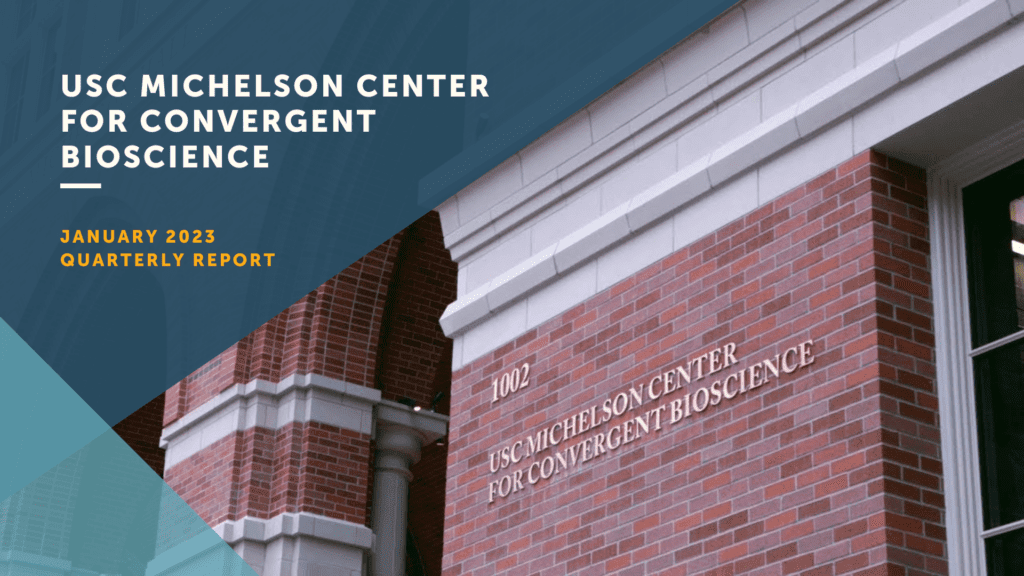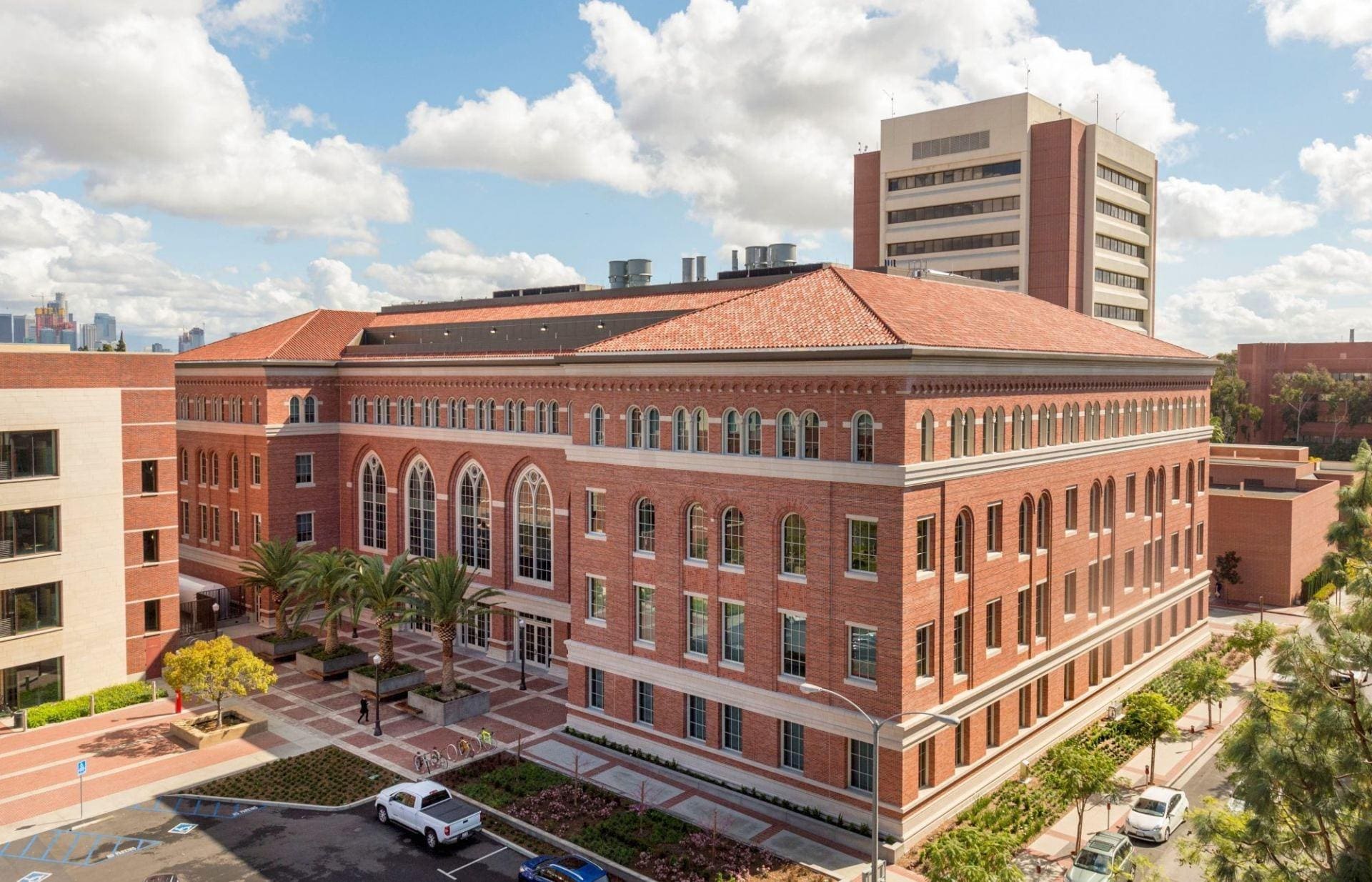The USC Michelson Center for Convergent Bioscience opened its doors in 2017. The center brings together researchers from different fields and disciplines, including engineering, medicine, and arts and sciences, and has produced a significant impact on society with its research.
Download the Quarterly Report
The USC Michelson Center for Convergent Bioscience has become a beacon of innovation and collaboration in the field of medicine and health. The center is celebrating its 5th anniversary, resulting from a generous $50 million gift from Michelson Philanthropies’ Gary and Alya Michelson. Michelson Hall, the center’s home, is a $185 million, 190,000 sqft building that provides the necessary infrastructure for researchers to develop lifesaving therapeutics and devices, tackling some of the most pressing health issues of our time.
The Michelson Center is a hub of interdisciplinary collaboration, bringing together faculty, postdocs, students, and staff from the Viterbi School of Engineering, the Keck School of Medicine, and the Dana and David Dornsife College of Letters, Arts and Sciences. Michelson Hall houses 36 faculty members, known as Michelson Faculty, and five research centers/institutes and five core facilities.
Since 2017, Michelson Faculty have submitted 1160 proposals as principal investigators (PIs) or co-PIs, requesting almost $1.7 billion in funding. Approximately 320 proposals totaling over $234 million have been awarded, with funding expected to exceed $300 million.
Recognition of research conducted by Michelson Faculty is demonstrated by the continued number of national and international awards and accolades received, most recently:
-
- Dr. Carl Kesselman was named 2023 IEEE Fellow by the Institute of Electrical and Electronics Engineers, a distinction reserved for select IEEE members whose extraordinary accomplishments reflect this prestigious grade elevation.
-
- Dr. Remo Rohs was elected American Association for the Advancement of Science (AAAS) Fellow, in recognition of his contributions to science and technology.
-
- Dr. Scott Fraser was one of three recipients of the Southern California Biomedical Council (SoCalBio) 2022 Innovation Awards. Dr. Fraser was honored with the 2022 Outstanding Researcher Award. The award recognizes those who “embody the spirit of innovation” and exemplify “the best that our region has to offer in entrepreneurship, research, and education.”
-
- Dr. Stacey Finley received the Cancer Warrior Award from the University of Colorado Comprehensive Cancer Center in recognition of her “outstanding contribution and achievement in cancer research and devotion to training future cancer warriors.“
-
- Dr. Steve Kay was designated a 2022 Clarivate Highly Cited Researcher, one of 10 USC faculty recognized by Clarivate for the demonstrated, significant and broad influence of their research as reflected in their publication of multiple highly cited papers over the last decade.
-
- Dr. Ellis Meng was awarded a $11.7 million grant from the National Institutes of Health to create the Center for Autonomic Nerve Recording and Stimulation Systems (CARSS).
The center’s research is making a real impact on society. A recent article in Nature reports on research by Dr. Vsevolod Katritch that holds promise for reducing the harmful side effects of fentanyl while still reducing pain, addressing the opioid crisis in the US.
The USC Michelson Center for Convergent Bioscience is a testament to the power of convergent research, bringing together researchers from diverse fields to tackle critical health issues. Steve Kay, a researcher at the center, notes the importance of the center’s convergent approach, saying, “What you need to do is build runways, not fences. This building is a runway that brings together people who might never meet.”
The USC Michelson Center for Convergent Bioscience continues to be at the forefront of scientific innovation, providing researchers with the tools and resources they need to advance public health. The center’s commitment to convergent research is a beacon of hope for those in need of medical advancements, and it will continue to be a leader in the field for many years to come.
To learn more, download the 2023 report.


